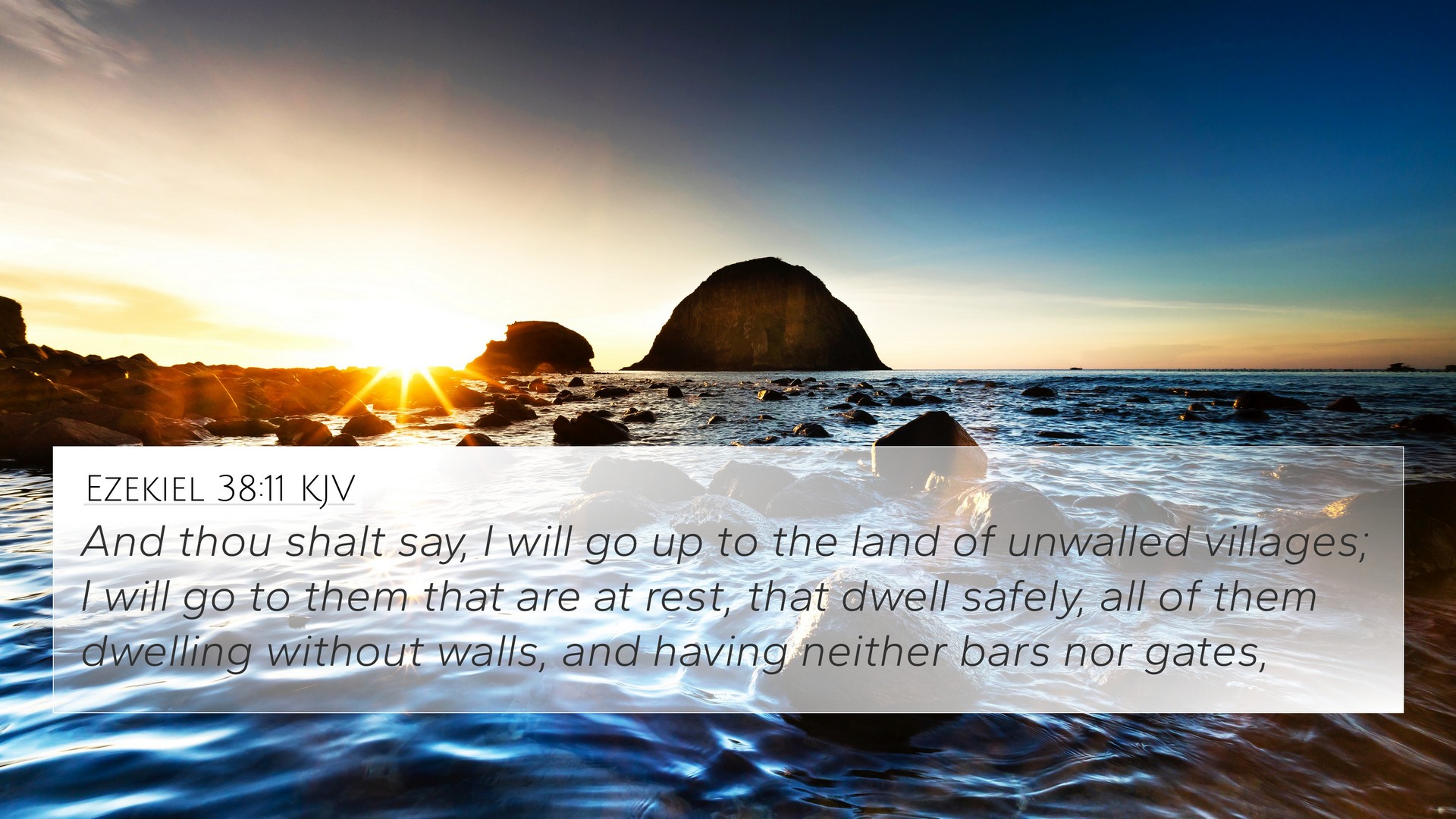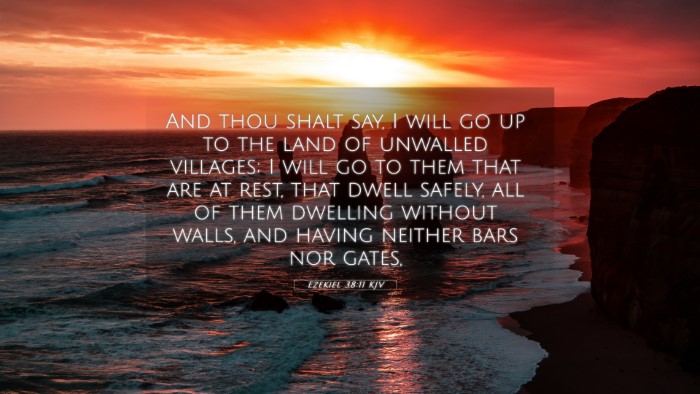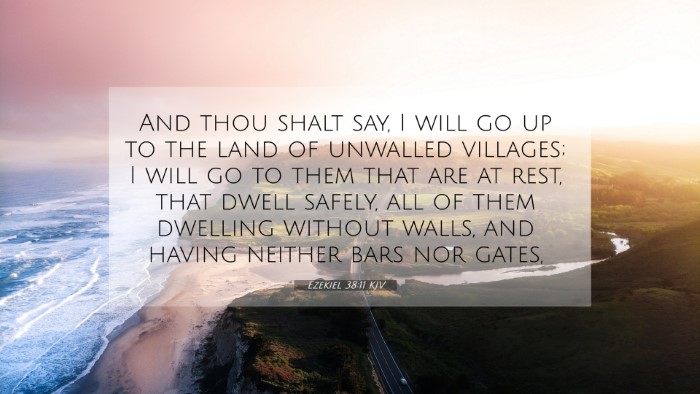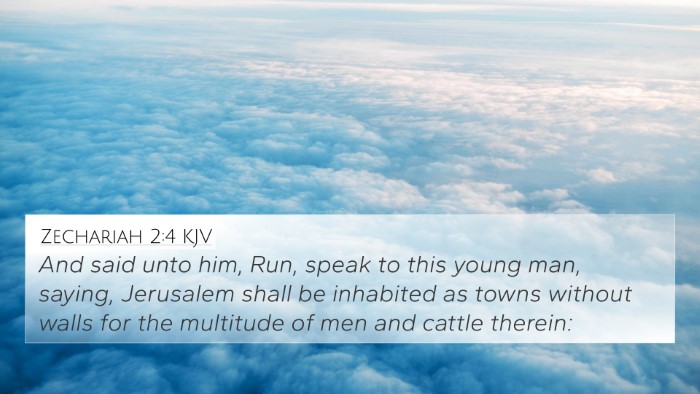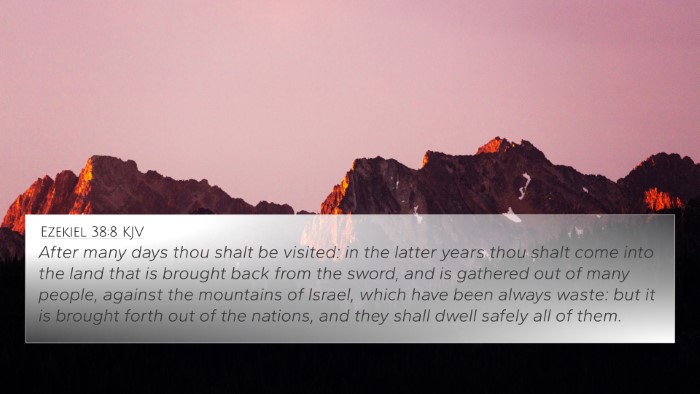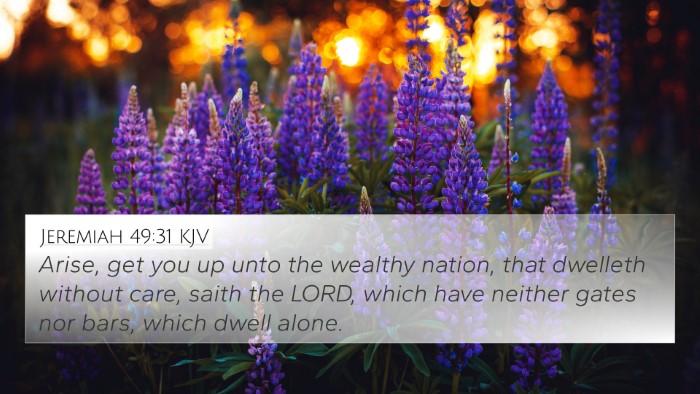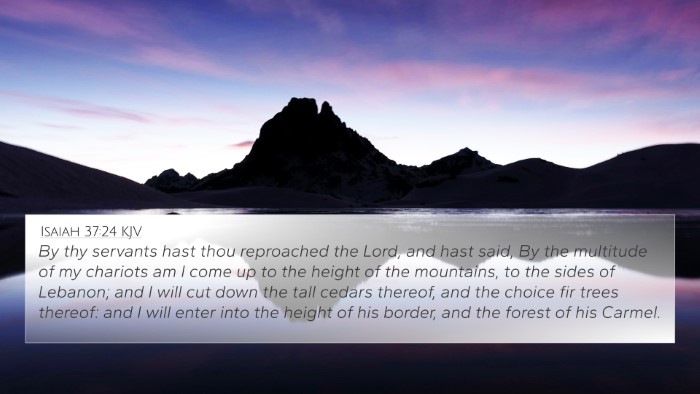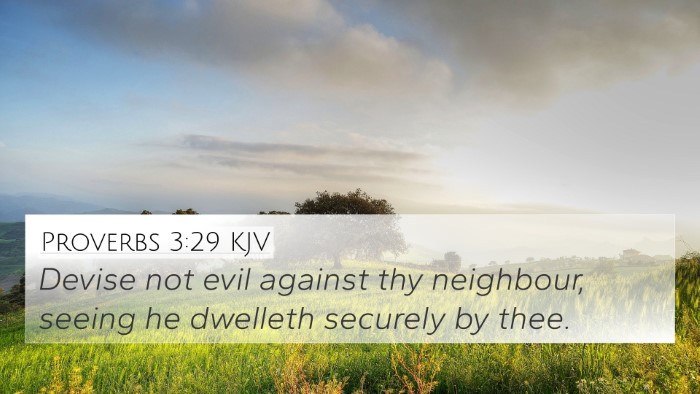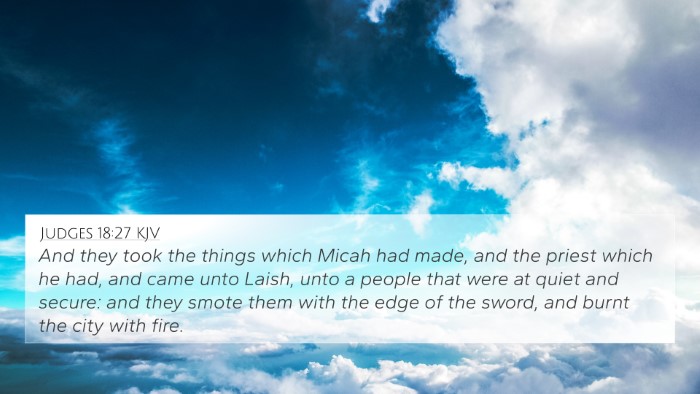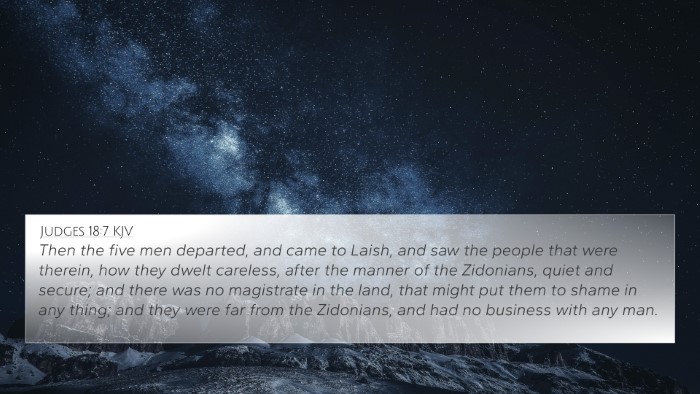Ezekiel 38:11 - Summary and Interpretation
Ezekiel 38:11 states, "And thou shalt say, I will go up to the land of unwalled villages; I will go to them that are at rest, that dwell safely, all of them dwelling without walls, and having neither bars nor gates." This verse, part of Ezekiel's prophecy concerning Gog and Magog, reveals significant themes of security and vulnerability among the people of God as they face impending threats.
Contextual Background
The book of Ezekiel was written during the Babylonian exile, a period marked by upheaval and a longing for restoration among the Israelites. Ezekiel's prophecies often address both current events and eschatological themes, highlighting God's sovereignty over nations and His people's ultimate redemption.
Key Insights from Commentaries
-
Matthew Henry Commentary:
Henry emphasizes the imagery of unwalled villages in Ezekiel 38:11 as a metaphor for inhabitants living in a false sense of security, suggesting that they are vulnerable to invasion precisely because they lack defenses. He interprets the "villages" to symbolize those who are oblivious to the need for spiritual vigilance.
-
Albert Barnes Commentary:
Barnes notes that the unwalled cities represent a state of peace and prosperity among the people. This peaceful setting, however, is soon to be disrupted by an invasion. Barnes suggests that their complacency and sense of safety lead to a spiritual blindness to the dangers that lurk around them, highlighting a need for watchfulness and readiness.
-
Adam Clarke Commentary:
Clarke discusses the implications of "without walls, bars, or gates," interpreting it as an absence of protection or fear from external threats. He points out how this can depict Israel's state during the latter days—a time of restoration when they might grow complacent, not realizing that they are vulnerable to enemies such as those represented by Gog.
Thematic Connections and Cross-References
Ezekiel 38:11 provides a rich basis for exploring connections between Bible verses. Here are several important scriptural cross-references that relate to this verse:
- Proverbs 1:32-33: This emphasizes the danger of complacency and the consequences of ignoring wisdom and warnings from God.
- Zephaniah 2:15: Reflects a similar theme, where complacent nations face divine retribution.
- Jeremiah 50:11: Illustrates the fate of Babylon and those who live in security, unaware of impending judgment.
- Isaiah 33:14: Links to the theme of false security and the inherent dangers of being unguarded spiritually.
- Revelation 17:1-6: Contains imagery of a fallen city that once flourished, echoing the fate of those described in Ezekiel.
- Matthew 24:43: Advises vigilance in light of unexpected calamities, reinforcing the need for spiritual preparedness.
- Ephesians 6:11-13: Encourages believers to put on the full armor of God, contrasting with the unwalled status in Ezekiel.
- 1 Peter 5:8: Calls attention to the need for alertness against adversarial forces as a reminder to be spiritually vigilant.
- Luke 12:39-40: Highlights the necessity of readying oneself for the unexpected times of trial.
- Hebrews 2:1: Exhorts vigilance and alertness, paralleling the concepts in Ezekiel about being spiritually awake.
Practical Applications and Learnings
The essence of Ezekiel 38:11 encourages readers to understand the risks of complacency in theological and spiritual contexts. The unwalled state of the cities serves as a powerful metaphor for denoting unpreparedness, whether in personal faith or within the community of believers.
As faithful Christians, it is vital to remain vigilant, continually seeking active engagement with God's word and community. Scriptures guide us in understanding that assurance in God's protection comes through a life lived in alignment with His principles.
Conclusion
Ezekiel 38:11 encapsulates profound warnings and lessons that resonate throughout the entirety of Scripture. By examining cross-references and drawing thematic connections, we glean a greater understanding of the Scriptures' interconnected nature. Engaging in comparative Bible verse analysis enriches our spiritual study, reminding us of the depth of God's plans and the need for unwavering vigilance within our lives.
